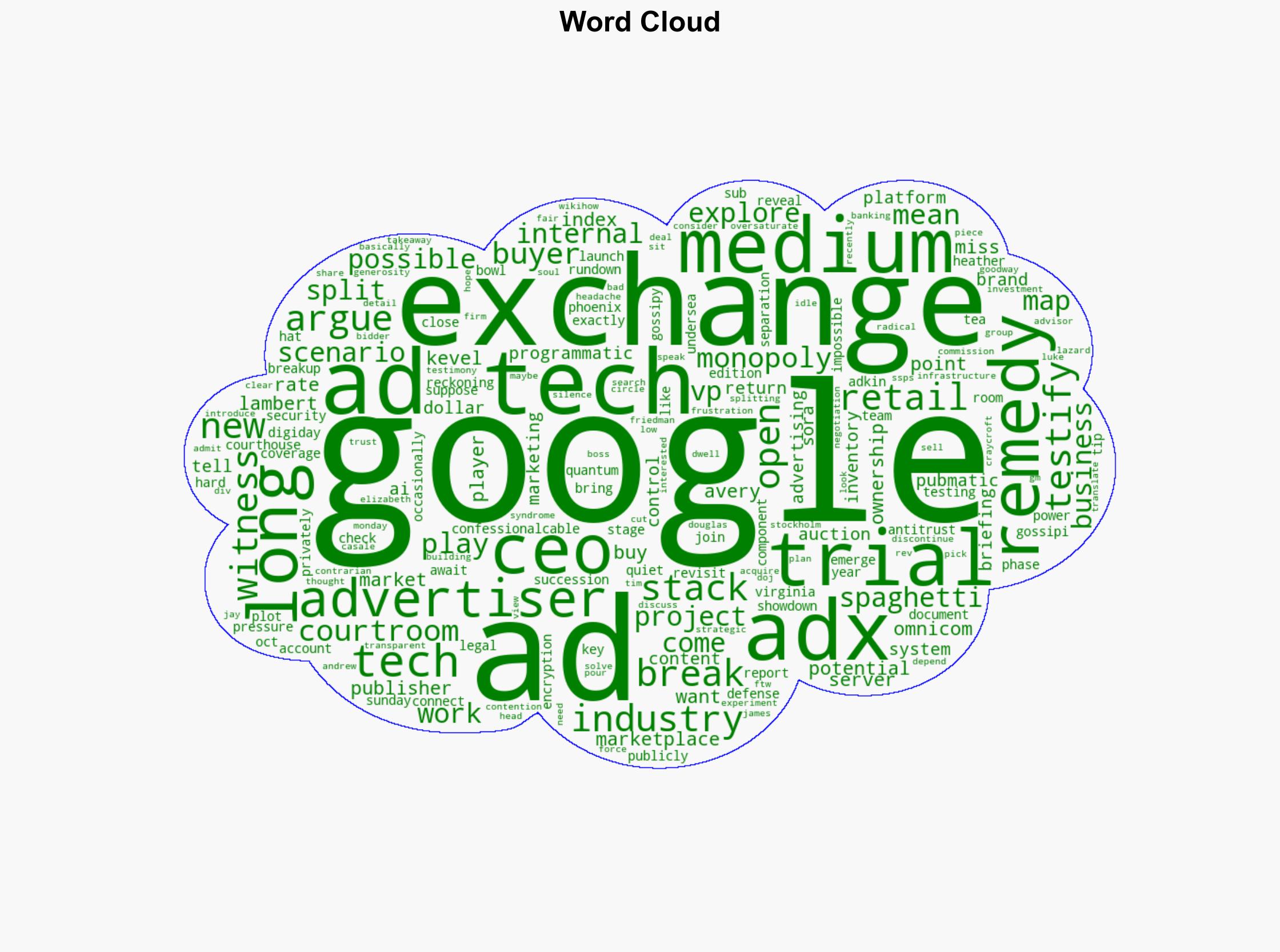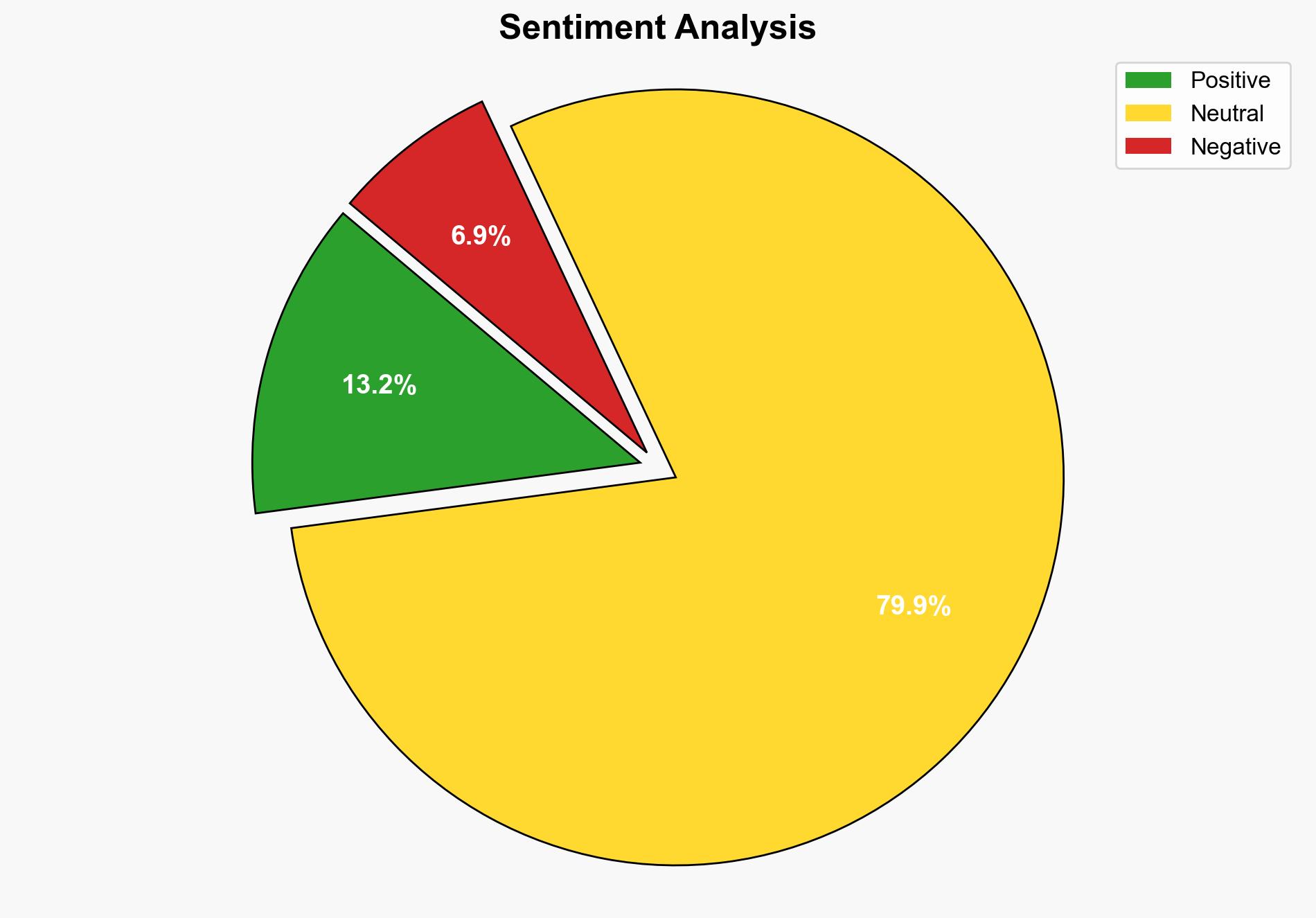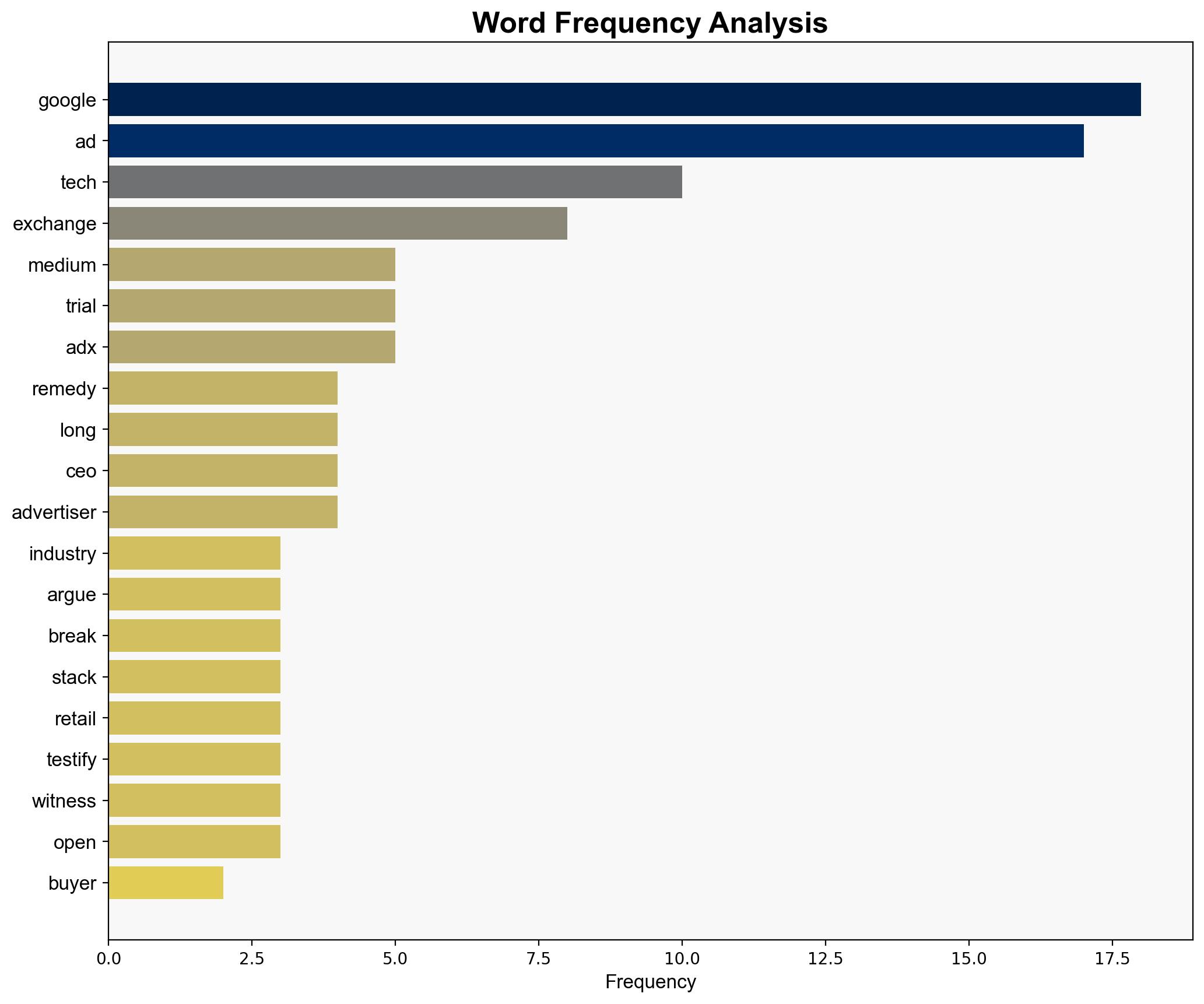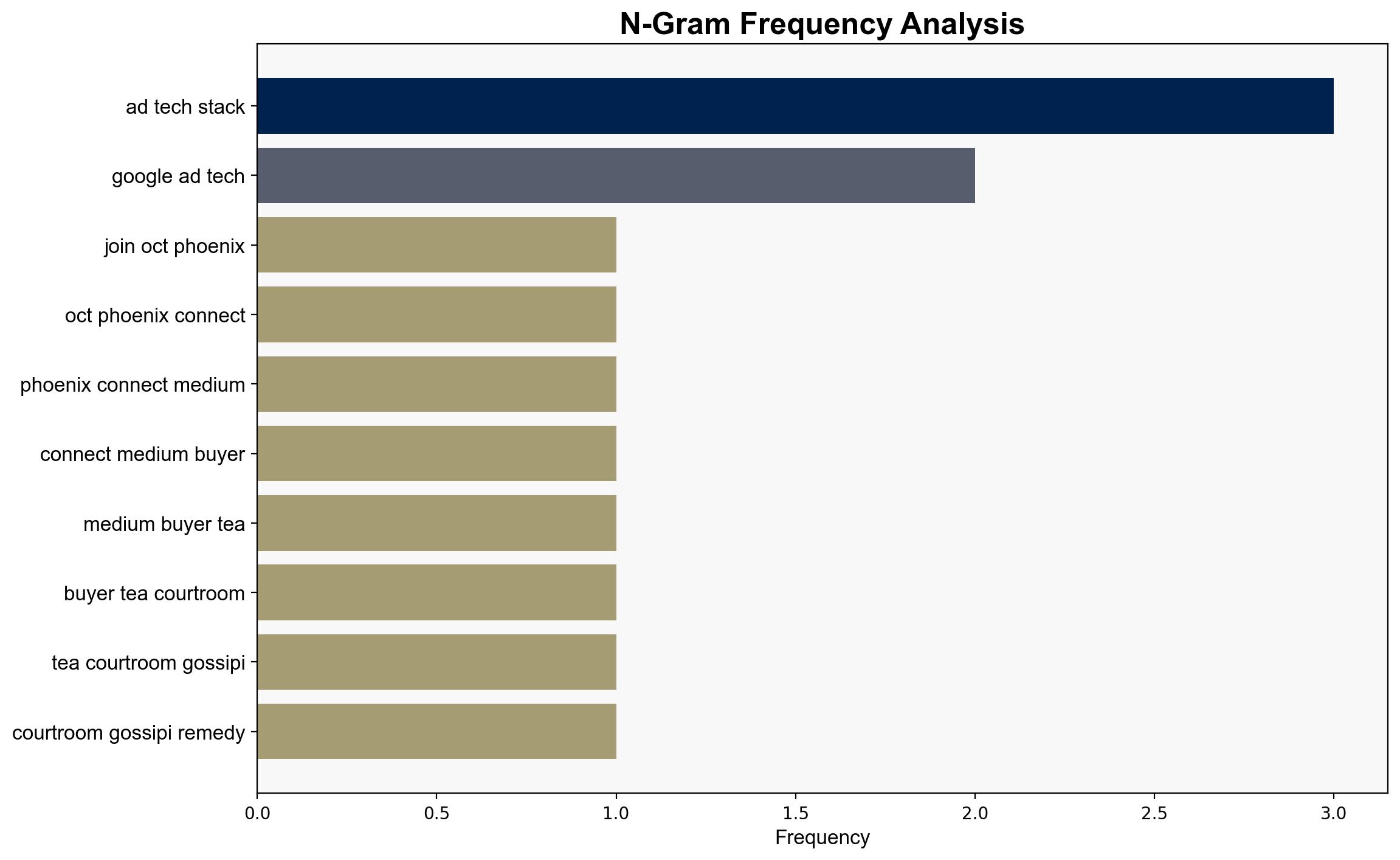Tea in the courtroom the gossipier side of the remedies trial over Googles ad tech monopoly – Digiday
Published on: 2025-10-10
Intelligence Report: Tea in the courtroom the gossipier side of the remedies trial over Googles ad tech monopoly – Digiday
1. BLUF (Bottom Line Up Front)
The trial over Google’s ad tech monopoly reveals significant strategic maneuvering and potential market impacts. The most supported hypothesis suggests that Google is strategically positioning itself to maintain control over the ad tech market despite potential divestitures. Confidence level: Moderate. Recommended action: Monitor Google’s legal strategies and market responses, focusing on transparency and potential shifts in market dynamics.
2. Competing Hypotheses
1. **Hypothesis A**: Google is genuinely exploring divestiture options to comply with antitrust pressures, potentially leading to a more competitive ad tech market.
2. **Hypothesis B**: Google’s actions are primarily strategic, aiming to maintain control over the ad tech market by shaping the narrative and legal outcomes to its advantage, even if divestitures occur.
Using ACH 2.0, Hypothesis B is better supported. Evidence includes Google’s internal documents suggesting pressure testing of separation scenarios and the strategic engagement of investment banking firm Lazard. These actions indicate a calculated approach to maintain influence over the market structure.
3. Key Assumptions and Red Flags
– **Assumptions**: Hypothesis A assumes Google is willing to relinquish control for compliance, while Hypothesis B assumes Google’s primary goal is to retain market dominance.
– **Red Flags**: Google’s public vs. private stances on divestiture, and the potential lack of transparency in their strategic intentions.
– **Blind Spots**: The potential impact of external regulatory pressures and competitor responses are not fully explored.
4. Implications and Strategic Risks
– **Economic**: A forced divestiture could reshape the ad tech landscape, affecting market shares and pricing strategies.
– **Cyber**: Changes in Google’s ad tech stack could introduce vulnerabilities or disrupt existing cybersecurity protocols.
– **Geopolitical**: The trial’s outcome may influence international regulatory approaches to tech monopolies.
– **Psychological**: Stakeholder trust in Google’s transparency and fairness could be eroded, impacting brand reputation.
5. Recommendations and Outlook
- Monitor legal proceedings and Google’s strategic communications for shifts in narrative or strategy.
- Engage with industry stakeholders to assess potential impacts on market dynamics and cybersecurity.
- Scenario-based projections:
- Best: Google complies with divestiture, leading to a more competitive market.
- Worst: Google retains control, stifling competition and innovation.
- Most Likely: Partial divestiture with Google maintaining significant market influence.
6. Key Individuals and Entities
– Heather Adkin
– Tim Craycroft
– Andrew Casale
– James Avery
– Elizabeth Douglas
– Luke Lambert
– Jed Dederick
7. Thematic Tags
antitrust, market dynamics, strategic positioning, regulatory compliance, transparency




